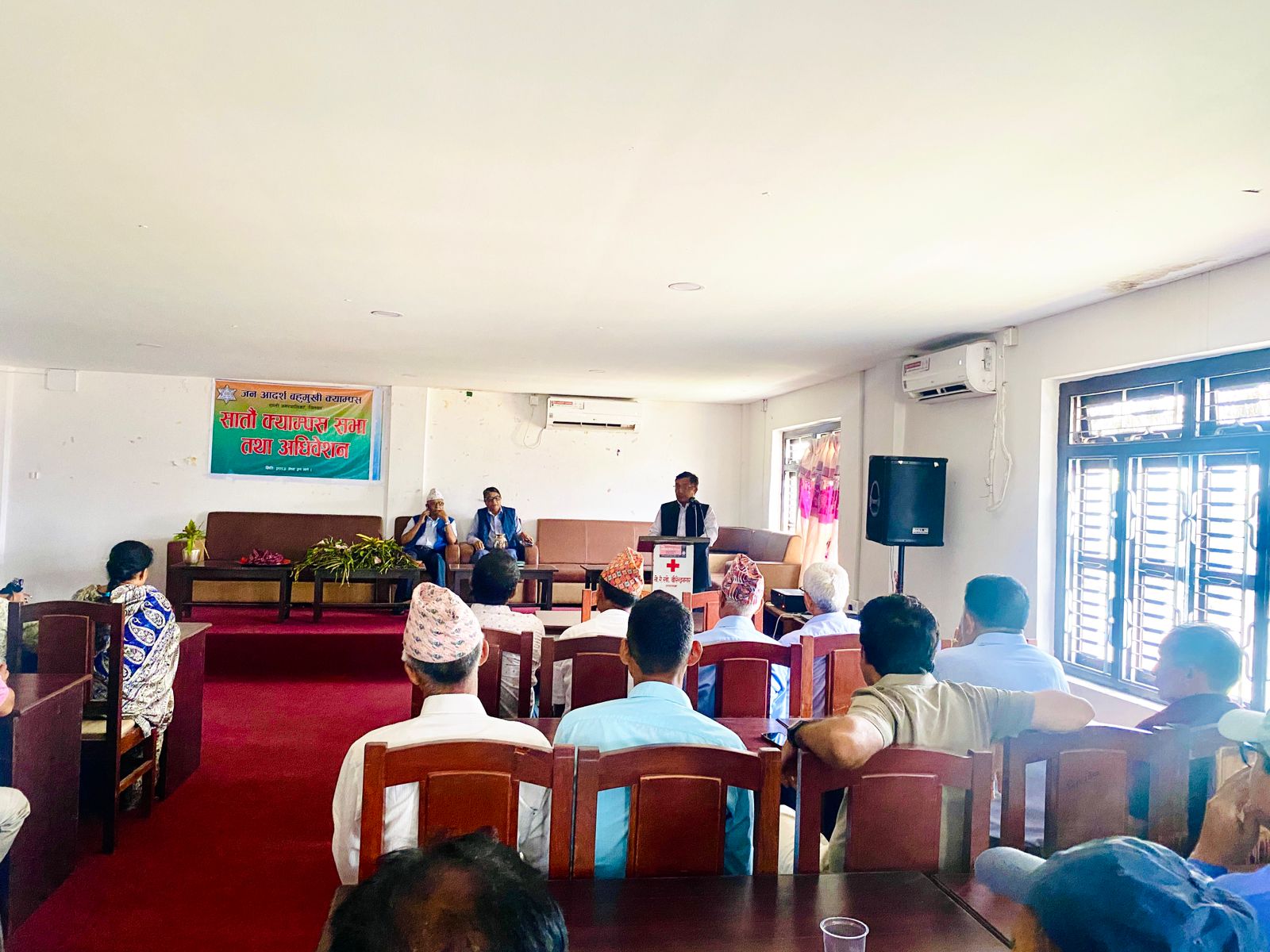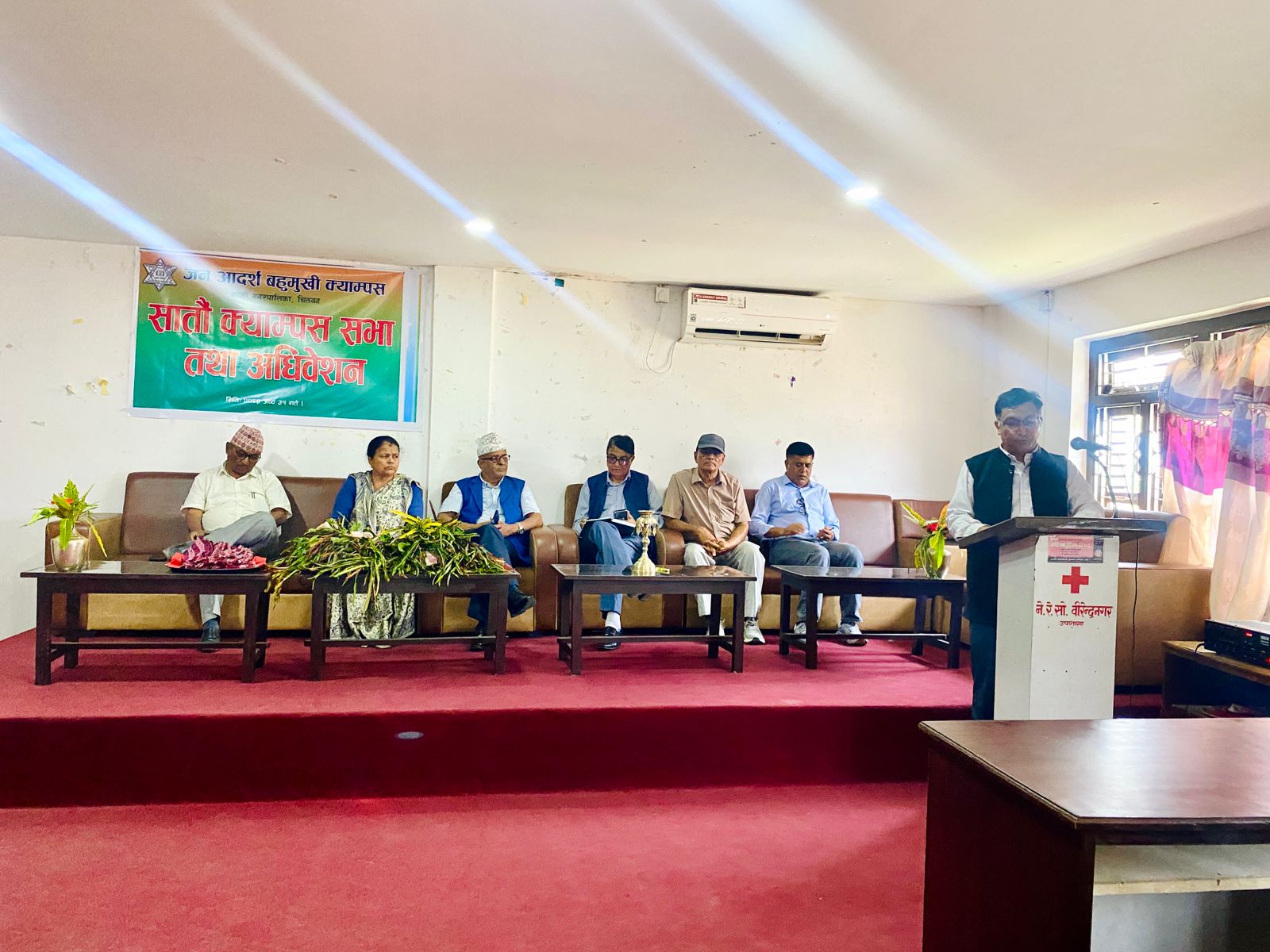Master of Business Studies (MBS)
The Master’s in Business Studies (MBS) program is a postgraduate degree offered by many universities and colleges in Nepal. It is a popular choice for students interested in pursuing careers in business, management, finance, and related fields. The MBS program typically covers a wide range of subjects, including Accounting, Marketing, Finance, and General Management.
Since 2018, GMMC has implemented the MBS program, and consistently, our students have achieved top positions in various semesters within Gandaki province. As our program follows a semester-based approach, we prioritize collaborative learning over individual learning. Our teaching and learning methods distinguish us from other institutions, making us a prominent establishment in Pokhara Metropolitan City. Moreover, certain students have been honored by the Pokhara Commercial Union for achieving the highest overall marks.
Scope of MBS
- Critical thinking and analytical skills in problem-solving
- Promote teamwork and collaboration
- Career Advancement
- Entrepreneurship and innovation
- Leadership Skills
- Global Opportunities
- Enhancing their overall job mobility
Curriculum Structure
The curriculum is provided by the Tribhuvan University, Faculty of Management, Office of Dean.
1. Core Courses
Core business courses integrate all analytical and functional areas and provide students with an appreciation of the diversity and inter-relationship of business and management issues. It includes subjects such as:
- Research Methodology
- Statistical Methods
- Managerial Economics
- Organizational Behaviour
- Human Resources Management
- Financial Management
- Management Accountancy
- Accounting for Financial and Managerial Decision and Control
- Marketing Management
- Production and Operations Management
- International Business
- Managerial Communication
- Entrepreneurship
- Strategic Management
- Business Environment
2. Specialization Courses
There are four areas of specialization offered for the students. Specialization in any one of the areas, such as Accounting, Finance, Marketing, and Management, enables the student to develop expertise in their concentration area. Altogether, 3 courses are offered in one area of specialization.
Students have to choose one specialization area and study one course from Group A in the third semester and two courses from Group B in the fourth semester.
3. Dissertation
The MBS program requires students to conduct original research work during the four semesters of the two-year study period. Students are required to write a dissertation based on their original research work. Students writing dissertations are encouraged to write their dissertation in an open area only based on their specialized area.
A student is required to undertake a research assignment and prepare a dissertation at the end of the fourth semester in the format prescribed by the FOM. The colleges shall assign a faculty member to supervise the research work. The research work must be presented in the format as prescribed by FOM. The evaluation of the research shall be based on the following two components:
- Written Report: 75%
- Viva-voce: 25%
4. Eligibility Conditions for Admission
The students applying for admission to the MBS course must have successfully completed the BBS program or a bachelor's degree in any discipline from Tribhuvan University or from any other university recognized by Tribhuvan University.
5. Teaching Pedagogy
The MBS program is based on the student-centered learning approach. The general teaching methodology of the program includes interactive lectures, students’ presentations, case studies, projects, group discussions, and so on. The teaching faculty shall determine the appropriate teaching-learning methods suitable for each course.
6. Attendance
This program demands a very high level of commitment from students. Students are required to attend regularly all classes and presentations as required by the course. Students failing to attend 80% of classes shall not be allowed to appear in the semester-end examinations, and NQ is provided to those students.
7. Examination and Evaluation
The performance of students will be evaluated through ongoing in-semester evaluations and semester-end examinations. The FOM shall have the final authority in conducting, evaluating, and awarding grades in semester-end examinations. The course facilitator (instructor) shall decide the grades in the in-semester evaluations. A student is required to pass the internal and external examinations independently.
8. In-semester Evaluations
The in-semester (internal) evaluation shall generally have a total weight of 40 percent in each course. Students have to secure at least 50 percent marks in each subject to pass the in-semester exam. The concerned faculty shall be responsible for the continuous in-semester evaluations. The in-semester evaluation shall be based on a student’s performance in class presentations, case analysis, project assignments, class tests, and others as required by the course. A student must secure a minimum Grade Point Average (GPA) of 2.7 or Grade B minus (B-) in a course in order to be eligible to appear in the semester-end examination of that course. The in-semester evaluations will be based on the following components:
| Pre-Board Exam | Project Assignment | Class-room Activities | Attendance | Total |
|---|---|---|---|---|
| 16% | 12% | 8% | 4% | 40% |
In case a student remains absent in the internal examination due to serious illness, they will be given one-time opportunity to appear in the exam if they are able to produce an authorized medical certificate. The internal exam notice will be published by the concerned examination department of the campus.
9. Grading System
The grading system followed in the MBS program will be based on the absolute performance of a student in the in-semester evaluations and semester-end examinations. The performance of a student in the MBS program shall be made on a four-point scale ranging from 0 to 4. The passing grade in the semester-end examination for an individual paper shall be grade “B minus” or GPA of 2.7. In order to pass the semester examination, the student must secure a minimum of Grade “B” or Cumulative Grade Point Average (CGPA) of 3.0 (60 percent). The overall grade of a student will be determined by the student’s performance in the in-semester and semester-end examinations. The following table presents the Letter Grade, GPA, percentage equivalent, and Performance Remarks for the MBS program:
| Grade | GPA | Percentage Equivalent | Performance Remarks |
|---|---|---|---|
| A | 4.00 | 90-100 | Distinction |
| A- | 3.70-3.99 | 80-89.99 | Very Good |
| B+ | 3.30-3.69 | 70-79.99 | First Division |
| B | 3.00-3.29 | 60-69.99 | Second Division |
| B- | 2.70-2.99 | 50-59.99 | Pass in Individual Subject |
| F | Below 2.70 | Below 50 | Fail |
Course Cycle
FIRST SEMESTER – 15 Credit Hours
- MKT 511 Marketing Management – 3 Cr.
- ECO 512 Managerial Economics – 3 Cr.
- MSC 514 Statistical Methods – 3 Cr.
- MGT 515 Organizational Behavior – 3 Cr.
- MGT 519 Managerial Communication – 3 Cr.
SECOND SEMESTER – 15 Credit Hours
- FIN 510 Financial Management – 3 Cr.
- MGT 513 Human Resource Management – 3 Cr.
- MSC 517 Production and Operations Management – 3 Cr.
- ACC 517 Management Accountancy – 3 Cr.
- MGT 518 Business Environment – 3 Cr.
THIRD SEMESTER – 15 Credit Hours
- ACC 519 Accounting for Financial and Managerial Decision and Control – 3 Cr.
- MSC 521 Research Methodology – 3 Cr.
- MGT 522 International Business – 3 Cr.
- MGT 524 Entrepreneurship – 3 Cr.
- Specialization Course (Any One from Group A)
- Finance
- FIN 687 Financial Derivatives and Market – 3 Cr.
- FIN 688 Corporate Finance – 3 Cr.
- Accountancy
- ACC 685 Corporate Taxation – 3 Cr.
- ACC 686 Cost Management – 3 Cr.
- Management
- MGT 687 Recent Trends in Management – 3 Cr.
- MGT 688 Organizational Theory – 3 Cr.
- Marketing
- MKT 691 Advertising and Promotion Management – 3 Cr.
- MKT 692 Rural Marketing – 3 Cr.
FOURTH SEMESTER – 15 Credit Hours
- MGT 523 Strategic Management – 3 Cr.
- Specialization Courses (Any Two from Group B)
- Finance
- FIN 685 Financial Markets and Institutions – 3 Cr.
- FIN 686 International Financial Management – 3 Cr.
- FIN 689 Investment Management – 3 Cr.
- FIN 690 Insurance: Theory and Practice – 3 Cr.
- FIN 691 Commercial Bank Management: Theory and Practice – 3 Cr.
- Marketing
- MKT 685 Consumer Behavior – 3 Cr.
- MKT 686 International Marketing – 3 Cr.
- MKT 687 Brand Management – 3 Cr.
- MKT 688 Sales Management – 3 Cr.
- MKT 689 Retail Management – 3 Cr.
- MKT 690 Services Marketing – 3 Cr.
- Accountancy
- ACC 687 Contemporary Auditing – 3 Cr.
- ACC 688 Accounting Theory and Financial Reporting – 3 Cr.
- ACC 689 Management Control Systems – 3 Cr.
- ACC 690 Balance Scorecard: A Tool for Performance Measurement – 3 Cr.
- Management
- MGT 685 Organizational Development and Change – 3 Cr.
- MGT 686 Quality Management – 3 Cr.
- MGT 689 Performance Management – 3 Cr.
- MGT 690 Leadership and Communication – 3 Cr.
- MGT 525 Dissertation – 6 Cr.










